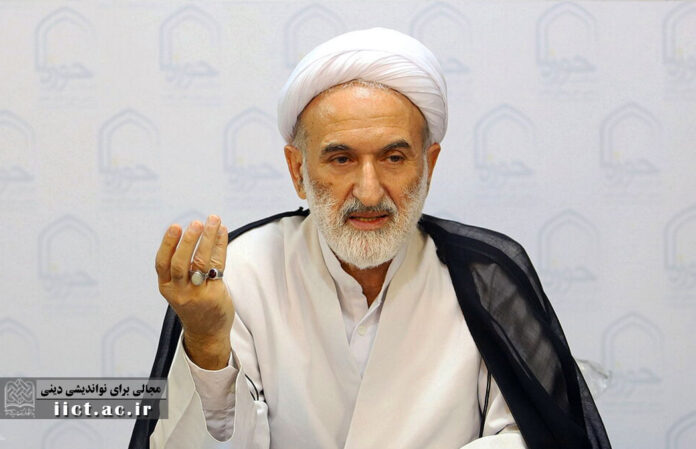According to the Public Relations Office of IICT, Hojjat al-Islam Ahmad Ali Yousefi, head of the Economics Department at the Institute, discussed with IQNA the role and impact of the Umayyad economic policies (during the reigns of Muawiyah and Yazid) in rendering society passive and indifferent to the issues of corruption and economic discrimination.
He stated: “in the second day of Muharram, Imam Hussain (AS) entered the plains of Karbala. When he stepped onto the land of Karbala, he first inquired about the name of the place. Various names were mentioned until they reached the name ‘Karbala.’ Upon hearing this name, Imam Hussain (AS) remarked that his grandfather, the Messenger of Allah (PBUH), had promised him this land, and thus he ordered the tents to be pitched in Karbala.”
He added, “Imam Hussain (AS) gathered his companions and addressed them, saying:
لناسُ عبیدُ الدنیا و الدین لعق علی السنتهم یحوطونه مادرَّت معایشُهم فاذا مُحَّصوا بالبلاء قَلَّ الدَیّانون
‘People are the slaves of this world, and religion is but a lick on their tongues; they maintain it as long as their lives are prosperous, but when tested by tribulation, the true religious ones are few.’ By ‘people,’ he did not mean his own companions, but rather the Umayyads and those who opposed Imam Hussain (AS), as well as those who feared and did not accompany him on his path.”
The Umayyads Enslaved People with Wealth
The head of the Economics Department at the Institute of IICT stated, “The Umayyads enslaved people with dirhams and dinars, and Imam Hussain (AS) understood this well. To prevent the destruction of religion, he rose up to preserve it. Had he not done so, nothing would have remained of Islam. In general, the Umayyads, through their wealth, drew people towards worldly pursuits and minimized the religious community.”
Referring to the corruption that occurred during the Umayyad era, he noted, “During the time of the Umayyads, there were various forms of corruption: political, social, moral, and, worst of all, economic corruption. The public treasury, spoils of war, and taxes collected from Islamic territories were controlled by the Umayyads and distributed among their inner circle and supporters, leaving the general populace impoverished and increasingly destitute. The widespread financial corruption of the Umayyads caused a significant portion of society to live in poverty and misery, while only a small segment of society, those connected to the Umayyad regime, benefited from the wealth.”
Imam Hussain’s (AS) Uprising Was Against Injustice
The economics scholar emphasized, “Naturally, when spoils, wealth, and taxes are concentrated in the hands of a select few, injustice, poverty, and corruption emerge. All of these were clearly observable and assessable under the Umayyad rule. In other words, the economic policies of the Umayyad dynasty intensified poverty and suffering in society, and the general population grappled with severe livelihood and economic challenges. Moreover, the Umayyad government was rife with injustice, and when Imam Hussain (AS) witnessed all these issues, he could not remain silent and thus rose in rebellion.”
Yousefi stated, “Islam opposes injustice, discrimination, poverty, and misery and strongly advocates for justice, the elimination of discrimination, and the fair distribution of society’s wealth. If the Umayyad economic policies had continued, nothing would have remained of Islam, and the foundations of a monarchical and oligarchic government would have been solidified. Imam Hussain (AS), with his uprising, was able to halt this deviant trend, albeit at the cost of his own blood and that of his companions.”




